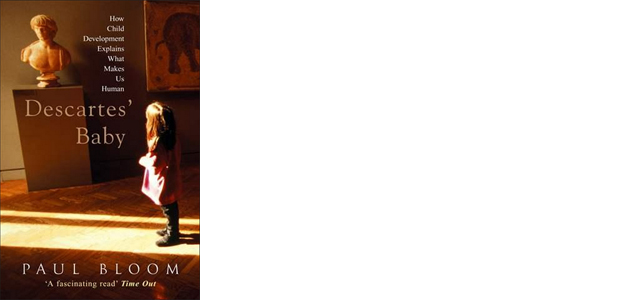How the Science of Child Development Explains What Makes Us Human
Paul Bloom, Basic Books, US$16.00
Bloom is a developmental psychologist. Drawing especially on research with infants and young children, he argues in this book from 2005 that human beings have evolved to approach the world as composed of essentially passive material objects on the one hand and essentially active subjects — souls — on the other. We are naturally Cartesian dualists, as it were — hence the title of the book.
Bloom discusses how the dualistic adaptation has fostered scientific inquiry, as well as aesthetic, moral, and religious experience.
None of these areas of experience, he argues, is reducible to a matter of blind biological drives. Conscious rational agency has shared in their constitution, giving all of them a rich set of cultural histories.
But note that such agency, when and where it occurs, is a social achievement, rather than the soul’s inherent power.
At the end of the book, Bloom quite reasonably asks whether, given the evolved Cartesian propensity, the body-soul distinction is not only adaptive but also correct: are there, in fact, souls as well as bodies, a realm of spirit independent of the world of matter, a duality to which our instinctive dualism is indeed well adapted?
He rightly answers that the instinct for dualism makes a very weak argument for the existence of spirit. However, unlike, say, Stephen Jay Gould, who asserted that science and religion were “non-overlapping magisteria”, and thus that claims concerning a spiritual realm would not be affected by scientific inquiry anyway, Bloom acknowledges that, in many cases, religious claims are meant to be empirical claims about how the world is and so do overlap — often conflictively — with the claims of science.
This is nowhere more the case than in the overlap between traditional Christian claims for the immaterial, immortal human soul and contemporary psychological science.
So, Bloom says, the future of psychology promises “interesting times” for religious readers like me: we must be ready for some serious soul-searching.
Andrew Irvine












